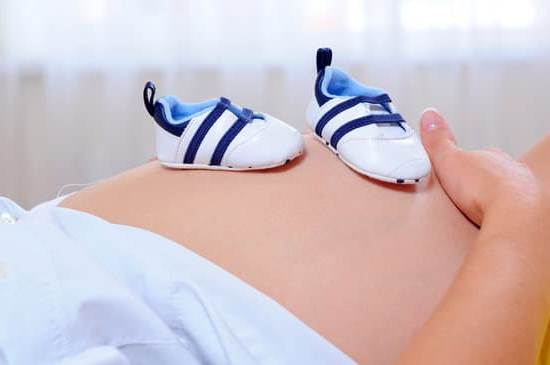A chemical pregnancy can be a devastating experience for couples who are trying to conceive. The emotional impact of a chemical pregnancy can leave many wondering what went wrong and why it happened. Understanding the causes behind a chemical pregnancy is essential for those who have experienced it, as well as those hoping to prevent it in the future.
A chemical pregnancy occurs when a fertilized egg fails to implant or is unable to develop properly, resulting in an early miscarriage. The exact cause of chemical pregnancy is not always clear, but there are several factors that can contribute to this occurrence. From hormonal imbalances and genetic factors to lifestyle and environmental influences, understanding the potential causes of chemical pregnancy can provide insight for those affected by this heartbreaking experience.
Many women may not even realize they have had a chemical pregnancy, as the signs and symptoms can be mistaken for a late period. However, being aware of the potential indicators such as abnormal bleeding or cramping can help individuals recognize and seek support if needed. Additionally, understanding the risk factors associated with chemical pregnancies, such as age and medical conditions, can offer valuable knowledge for those hoping to conceive in the future.
Signs and Symptoms of Chemical Pregnancy
A chemical pregnancy is often characterized by early pregnancy symptoms that may be similar to those experienced during a regular menstrual cycle. Some of the common signs and symptoms of chemical pregnancy include:
- Light spotting: Many women experience light vaginal bleeding or spotting around the time of their expected period. This can be one of the earliest signs of a chemical pregnancy.
- Abdominal cramping: Mild cramping in the lower abdomen may occur, similar to the discomfort experienced during menstruation.
- Changes in breast tenderness: Some women may notice changes in their breast tenderness or sensitivity as a possible sign of chemical pregnancy.
It is important to note that these signs and symptoms can vary from person to person, and some women may not experience any noticeable symptoms at all. Additionally, a chemical pregnancy may be diagnosed through blood tests or ultrasounds before any physical symptoms are noticed.
If you suspect that you may be experiencing a chemical pregnancy, it is important to consult with your healthcare provider for confirmation and guidance on next steps.
Overall, understanding the signs and symptoms of a chemical pregnancy can help individuals recognize and address this early loss effectively. Keeping track of any unusual changes in your body and seeking prompt medical attention can provide valuable support during this challenging time.
Risk Factors for Chemical Pregnancy
When it comes to understanding the potential causes of chemical pregnancies, it is important to consider the various risk factors that may contribute to this phenomenon. Chemical pregnancies can occur for a variety of reasons, and certain factors may increase the likelihood of experiencing one.
One of the primary risk factors for chemical pregnancy is hormonal imbalance. When a woman’s hormones, particularly progesterone and estrogen, are not at the appropriate levels, it can make it difficult for a fertilized egg to implant and grow properly in the uterus. This can lead to early pregnancy loss, also known as a chemical pregnancy.
In addition to hormonal imbalance, genetic factors can also play a role in causing chemical pregnancies. These genetic abnormalities can affect the development of the embryo, making it less likely to successfully implant in the uterine lining. It is important for individuals who have experienced recurrent chemical pregnancies to undergo genetic testing to assess any potential hereditary factors that may be contributing to their losses.
Furthermore, environmental and lifestyle factors can also contribute to the occurrence of chemical pregnancies. Exposure to certain toxins, such as cigarette smoke or other environmental pollutants, can increase the likelihood of early pregnancy loss. Additionally, lifestyle choices such as excessive alcohol consumption or drug use can impact fertility and increase the risk of chemical pregnancy. Understanding these risk factors is crucial in order for individuals to take proactive measures in reducing their chances of experiencing a chemical pregnancy.
Hormonal Imbalance and Chemical Pregnancy
Chemical pregnancy, also known as an early miscarriage, can be a devastating experience for many women. While the exact cause of chemical pregnancies is often unclear, there are several factors that may contribute to their occurrence. One significant factor that has been linked to chemical pregnancies is hormonal imbalance.
Imbalanced Hormones and Pregnancy
Hormones play a crucial role in regulating the menstrual cycle and preparing the body for pregnancy. When there is an imbalance in hormone levels, it can disrupt the implantation and development of the fertilized egg, leading to a chemical pregnancy. Specifically, low levels of progesterone, which is essential for maintaining a healthy pregnancy, have been associated with an increased risk of chemical pregnancy.
Polycystic Ovary Syndrome (PCOS) and Chemical Pregnancy
Women with polycystic ovary syndrome (PCOS) often experience hormonal imbalances, including elevated levels of male hormones and insulin resistance. These imbalances can interfere with normal ovulation and increase the likelihood of chemical pregnancy.
Treatment for Hormonal Imbalance
For women who suspect that their chemical pregnancies may be related to hormonal imbalance, seeking medical evaluation is important. A healthcare provider can conduct tests to assess hormone levels and recommend appropriate treatment options, such as hormone therapy or lifestyle changes, to help rebalance hormones and support future pregnancies.
Overall, while hormonal imbalances may contribute to the occurrence of chemical pregnancies, comprehensive medical evaluation and personalized treatment plans can help address these issues and improve the chances of a successful pregnancy in the future.
Genetic Factors and Chemical Pregnancy
When it comes to understanding what causes chemical pregnancy, genetic factors play a significant role. Genetic abnormalities in either the egg or sperm can lead to an embryo that is not viable, resulting in a chemical pregnancy. These genetic issues can prevent the embryo from developing properly, leading to the pregnancy being unable to progress.
One of the most common genetic factors associated with chemical pregnancies is chromosomal abnormalities. Chromosomal issues in either the egg or sperm can result in an embryo that is not able to develop normally. This can lead to early pregnancy loss and is a major contributor to chemical pregnancies.
In addition, other genetic factors such as inherited genetic conditions or gene mutations can also play a role in causing chemical pregnancies. These genetic issues can affect the overall health and development of the embryo, making it difficult for the pregnancy to continue successfully. It’s important for individuals who have experienced recurrent chemical pregnancies to consider genetic testing and counseling to better understand any potential genetic factors contributing to their losses.
Lifestyle and Environmental Factors Contributing to Chemical Pregnancy
Smoking and Chemical Pregnancy
Studies have shown that smoking can greatly increase the risk of chemical pregnancy. The harmful chemicals in cigarettes can affect the reproductive system, making it more difficult for a fertilized egg to implant in the uterus. Smoking also reduces the quality of eggs and sperm, which can lead to an increased risk of early pregnancy loss.
Exposure to Environmental Toxins
Exposure to certain environmental toxins such as pesticides, lead, and certain chemicals found in plastics and household products can also contribute to chemical pregnancy. These substances can disrupt the hormonal balance necessary for a successful pregnancy and may also negatively impact reproductive health.
Diet and Nutrition
Poor diet and nutrition can play a significant role in chemical pregnancies. A diet lacking in essential nutrients such as folic acid, iron, and other vitamins and minerals necessary for a healthy pregnancy can increase the risk of early pregnancy loss. Additionally, consuming high levels of caffeine has been linked to a higher risk of chemical pregnancies.
It’s important for individuals attempting to conceive to be mindful of these lifestyle and environmental factors. Making positive changes such as quitting smoking, minimizing exposure to toxins, and maintaining a healthy diet can help reduce the likelihood of experiencing a chemical pregnancy.
Medical Conditions and Chemical Pregnancy
Chemical pregnancy, also known as early miscarriage, is a pregnancy loss that occurs shortly after implantation. One of the factors that may contribute to chemical pregnancy is the presence of certain medical conditions. These conditions can affect the health and viability of the embryo, leading to unsuccessful pregnancies.
One medical condition that can increase the risk of chemical pregnancy is polycystic ovary syndrome (PCOS). Women with PCOS have higher levels of androgens, which can interfere with normal ovulation and lead to irregular menstrual cycles. This hormonal imbalance can make it difficult for the embryo to implant properly in the uterus, increasing the likelihood of chemical pregnancy.
Another medical condition associated with chemical pregnancy is thyroid disorders. Both hypothyroidism and hyperthyroidism can disrupt the delicate balance of reproductive hormones, affecting ovulation and embryo implantation. Thyroid dysfunction has been linked to higher rates of early miscarriage, including chemical pregnancies.
Additionally, women with autoimmune disorders such as lupus or antiphospholipid syndrome may be at greater risk for chemical pregnancy. These conditions can cause inflammation and affect blood flow to the uterus, compromising the development of a healthy pregnancy.
Overall, it’s important for women who have experienced a chemical pregnancy to work closely with their healthcare provider to address any underlying medical conditions that may have contributed to their pregnancy loss.
| Medical Conditions | Associated Risk |
|---|---|
| Polycystic Ovary Syndrome (PCOS) | Increased likelihood of hormonal imbalance affecting embryo implantation |
| Thyroid Disorders | Disruption of reproductive hormones leading to higher rates of early miscarriage |
| Autoimmune Disorders | Inflammation and impaired blood flow affecting healthy pregnancy development |
Coping With the Emotional Impact of Chemical Pregnancy
Experiencing a chemical pregnancy can be emotionally challenging for many women. The disappointment and grief that comes with the loss of a pregnancy, no matter how early, is valid and it’s important to take the time to process these emotions. Here are some ways to cope with the emotional impact of a chemical pregnancy:
1. Allow yourself to grieve: It’s natural to experience a range of emotions such as sadness, anger, and fear after a chemical pregnancy. Give yourself permission to feel these emotions without judgment.
2. Seek support: Talking about your feelings with a trusted friend or family member can help you feel less alone in your experience. Consider joining a support group for women who have experienced similar losses.
3. Take care of yourself: Engage in activities that bring you comfort and relaxation, whether it’s practicing yoga, going for walks, or spending time with loved ones.
It’s essential to remember that each woman copes with the emotional impact of a chemical pregnancy differently, so it’s important to find what works best for you and give yourself the time and space to heal from this experience. If you find that your emotions are overwhelming and impacting your daily life, seeking professional help from a therapist or counselor can be beneficial in navigating through this difficult time.
Seeking Treatment and Support for Recurrent Chemical Pregnancies
In conclusion, chemical pregnancies can be a devastating experience for women who are trying to conceive. The emotional toll of a chemical pregnancy can be significant, and it is essential for individuals to seek the support they need to cope with the loss. It is also important for individuals to understand the potential causes of chemical pregnancies in order to seek appropriate treatment and support for recurrent occurrences.
While the exact cause of chemical pregnancy may vary from individual to individual, several factors can contribute to the occurrence of this type of early miscarriage. These factors may include hormonal imbalances, genetic factors, lifestyle and environmental influences, as well as underlying medical conditions. By understanding these potential causes, individuals may be better equipped to seek appropriate medical treatment and support that could improve their chances of successful pregnancy.
It is crucial for individuals who have experienced recurrent chemical pregnancies to seek out the guidance of a healthcare professional specializing in fertility. This may involve undergoing testing to identify any underlying issues that could be contributing to repeated early pregnancy losses.
Additionally, seeking emotional support through counseling or support groups can help individuals cope with the challenges of experiencing multiple chemical pregnancies. By addressing both the physical and emotional aspects of recurrent chemical pregnancies, individuals can work towards achieving a healthy and successful pregnancy in the future.
Frequently Asked Questions
What Is the Common Reason for Chemical Pregnancy?
The most common reason for a chemical pregnancy is chromosomal abnormalities in the fertilized egg, preventing it from developing normally. This can happen randomly and is not usually preventable.
How Can Chemical Pregnancies Be Prevented?
There is no foolproof way to prevent chemical pregnancies, as they are often caused by genetic or chromosomal issues. However, maintaining a healthy lifestyle, avoiding harmful substances, and seeking medical advice early on may help reduce the risk.
Does a Chemical Pregnancy Mean I Am Fertile?
Experiencing a chemical pregnancy does not necessarily mean that you are infertile. Many women who have had a chemical pregnancy go on to have successful pregnancies in the future. It’s important to seek support and guidance from a healthcare professional to understand your specific circumstances.

Welcome to my fertility blog. This is a space where I will be sharing my experiences as I navigate through the world of fertility treatments, as well as provide information and resources about fertility and pregnancy.





